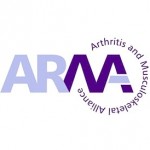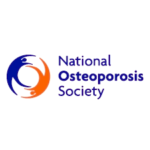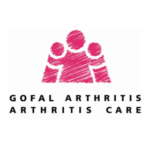 Physical activity seems to have been the theme for the last few weeks. The latest phase of Public Health England’s ‘One You’ campaign Active 10 aims to get inactive people doing 10 minutes of brisk walking per day. Whilst I have seen some questioning of “shock tactics”, the statistic that 41% of people aged 40 – 60 in the UK do not do 10 minutes of brisk walking in a month certainly helped gain coverage. I’m sure the new Active 10 app will get some people walking on a daily basis.…
Physical activity seems to have been the theme for the last few weeks. The latest phase of Public Health England’s ‘One You’ campaign Active 10 aims to get inactive people doing 10 minutes of brisk walking per day. Whilst I have seen some questioning of “shock tactics”, the statistic that 41% of people aged 40 – 60 in the UK do not do 10 minutes of brisk walking in a month certainly helped gain coverage. I’m sure the new Active 10 app will get some people walking on a daily basis.…
Read more of this article
Category: Health Policy
Sport and Exercise Medicine holds key to GP Physical Activity Support
The Faculty of Sport and Exercise Medicine (FSEM) UK welcomes the recent report published in the British Journal of General Practice – GPs’ knowledge, use and confidence in national physical activity and health guidelines and tools: a questionnaire-based survey of general practice in England.
The FSEM (UK), which represents and sets standards for Sport and Exercise Medicine clinical practice in the UK, is taking action to provide GPs with physical activity learning and reliable, evidence-based information to prevent and manage lifestyle-related diseases via physical activity.…
Read more of this article
One You campaign: 6 million adults do not do a monthly brisk 10 minute walk
Public Health England, as part of its ‘One You’ campaign, today (24 August 2017) reveals that 4 out of 10 (41%) adults aged 40 to 60 in England walk less than 10 minutes continuously each month at a brisk pace.
Over 6.3 million adults aged 40 to 60 do not achieve 10 minutes of continuous brisk walking over the course of a month and are missing out on important health benefits, according to evidence reviewed by Public Health England (PHE).…
Read more of this article
ARMA Policy Position: Prevention of Musculoskeletal Conditions
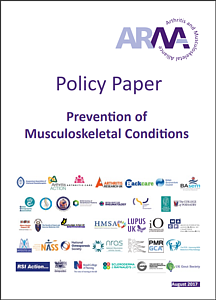 Arthritis and musculoskeletal conditions affect the bones, joints and muscles, and burdens the lives of so many people.
Arthritis and musculoskeletal conditions affect the bones, joints and muscles, and burdens the lives of so many people.
Musculoskeletal conditions are now the UK’s the biggest cause of pain and disability, accounting for an astounding one-in-five of all visits to the GP. Furthermore, trends indicate that more people than ever will be affected by MSK disorders in the coming years, which is why preventing them has never been more important. For this reason, the Arthritis and Musculoskeletal Alliance (ARMA), an alliance of prominent health charities, professional and research bodies, has produced a Policy Position Paper on Prevention of Musculoskeletal conditions.…
Read more of this article
ARMA Policy Position Paper on Joint Replacement Surgery
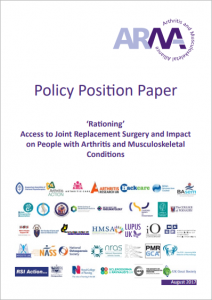 In early August, ARMA has published a Policy Position Paper titled:
In early August, ARMA has published a Policy Position Paper titled:
‘Rationing’ Access to Joint Replacement Surgery and Impact on People with Arthritis and Musculoskeletal Conditions [document opens in pdf]
It deals with the damaging nature of thresholds and scoring tools, the problems of waiting times and restricted access to surgery, and how patients with musculoskeletal conditions are affected.
The Alliance is drawing attention to worrying trends in treatment access and the paper makes clear the key outcomes we are seeking from CCGs and the NHS.
The vital role of good MSK services
 One thing I have been really struck by since starting this role is just how much musculoskeletal conditions impact across the breadth of a person’s life, and just how much unaddressed MSK conditions impact other parts of health services.
One thing I have been really struck by since starting this role is just how much musculoskeletal conditions impact across the breadth of a person’s life, and just how much unaddressed MSK conditions impact other parts of health services.
This month’s blog highlights how MSK conditions impact the ability of NHS staff to do their jobs. ARMA members Arthritis Research UK recently published a report on Musculoskeletal Conditions and Multimorbidity, which highlights how MSK conditions make dealing with other long-term conditions that much harder.…
Read more of this article
NICE Technology appraisal on bisphosphonates for osteoporosis
 On 10th July 2017, NICE issued a new Technology Appraisal (TA) for bisphosphonates which links the recommendations for drug treatments to advice on fracture risk assessment outlined in their earlier guidance. The TA is not intended to provide treatment thresholds but offers recommendations on cost-effective use of bisphosphonates when using fracture risk assessment as described in their guideline www.nice.org.uk/
On 10th July 2017, NICE issued a new Technology Appraisal (TA) for bisphosphonates which links the recommendations for drug treatments to advice on fracture risk assessment outlined in their earlier guidance. The TA is not intended to provide treatment thresholds but offers recommendations on cost-effective use of bisphosphonates when using fracture risk assessment as described in their guideline www.nice.org.uk/
For the first time, these recommendations will apply to men as well as women.
The TA says that provided an individual meets the criteria for fracture risk assessment there should be no financial barrier to them receiving bisphosphonates if they have a fracture risk of at least 1% using FRAX or QFracture.…
Read more of this article
Assembly Members debate paediatric rheumatology
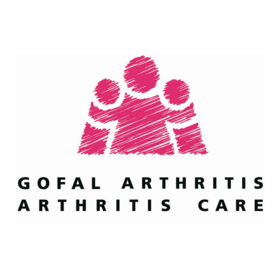 AMs in the National Assembly for Wales voted overwhelmingly in favour of a motion calling for a full multidisciplinary paediatric rheumatology service to be developed in Wales. Despite Cabinet Members abstaining, 27 AMs voted to support the motion, with nine abstentions and none against. There is now significant pressure on the government to take action.
AMs in the National Assembly for Wales voted overwhelmingly in favour of a motion calling for a full multidisciplinary paediatric rheumatology service to be developed in Wales. Despite Cabinet Members abstaining, 27 AMs voted to support the motion, with nine abstentions and none against. There is now significant pressure on the government to take action.
Arthritis Care Wales, the British Society for Rheumatology and the National Rheumatoid Arthritis Society have been campaigning to ensure children with arthritis in Wales have access to vital services.…
Read more of this article
Guest Blog: NHS Staff Survey – Looking after our healthcare staff
 By Chris Graham, Chief Executive, Picker Institute Europe
By Chris Graham, Chief Executive, Picker Institute Europe
Arguments about the pressures on the NHS at a system level are well rehearsed; rising demand, financial restraint, and challenges around staffing numbers are well reported. But what of the impact of caring on healthcare professionals as people?
The NHS Staff Survey is an annual survey that aims to help providers to understand how it feels to work in the health service. In 2016, it recorded the experiences of more than 423,000 members of NHS staff – and provides fascinating insight into the health and wellbeing of NHS staff.…
Read more of this article
CEO update – What a difference a month makes.
 What a difference a month makes. When I last wrote an introduction to the ARMA newsletter we were in the run up to an election. I’m not sure anyone expected the result to go quite the way it did. Instead of increasing their majority the Government now has no majority at all and will have to rely on the support of other parties to get their plans through. What will this mean for people with MSK conditions?
What a difference a month makes. When I last wrote an introduction to the ARMA newsletter we were in the run up to an election. I’m not sure anyone expected the result to go quite the way it did. Instead of increasing their majority the Government now has no majority at all and will have to rely on the support of other parties to get their plans through. What will this mean for people with MSK conditions?
In some ways it will be yet another distraction.
Read more of this article




